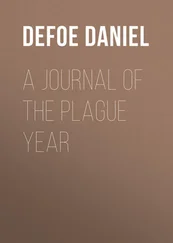A firecracker went off nearby, causing Mrs Rieux to shudder. “Should we call the police?”
“It’s Halloween,” Rieux told her.
“Oh … I’d forgotten about these North American customs,” she said, recovering her composure.
Rieux had begun to explain the peculiarity of firecrackers at Halloween when the land line rang again. This time it was Mr Santos’s wife. “I’m so sorry to bother you,” she said. “My husband is unwell, but he refuses to visit the hospital.”
It took Rieux a moment to understand what had happened: Mr and Mrs Santos had argued about calling Rieux, and Mr Santos had called him preemptively, thinking Rieux had already spoken to his wife. Mrs Santos described symptoms that resembled the flu. Dr Rieux said he would be down immediately. Normally he would have advised Mrs Santos to take her husband to the hospital, but he knew how stubborn the man could be.
“I have to speak to the superintendent,” Rieux told his mother. While her back was turned, he retrieved the bicycle saddlebags where he kept some medical equipment.
The Santos’s suite was similar to Rieux’s, though their patio view offered more of the commuter traffic of Great Northern Way than the mountains. Mrs Santos led Rieux to the living room. Mr Santos was sitting on a worn brown leather couch, a wool blanket pulled up to his neck, his legs extended on a footrest. A water bottle sat on the armrest. The living room was dimly lit except for a floor lamp at the far end of the couch.
Mr Santos was visibly clammy. When he first saw Rieux, something like fear passed his face, which he covered over with a defiant, impatient look. The doctor realized that he’d always seen Mr Santos smiling, standing completely erect. The superintendent’s features had never been more expressive, and he felt the superintendent’s shame reflected back onto him.
“What did I already tell you, Dr Rieux?” he asked him.
“Mrs Santos asked me to take a look,” Rieux told him. “I promise you, if this is not serious, we will leave you alone.”
“There’s swelling, Doctor,” Mrs Santos said.
Mr Santos nodded and looked away as Rieux moved the floor lamp closer and retrieved a pair of latex gloves, a stethoscope, and a flashlight from his bag. Mr Santos flung his head back like a silent-film damsel-in-distress as Rieux pulled off the wool blanket.
Mr Santos was outfitted in a white undershirt and pyjama bottoms. The swelling on his lymph nodes startled Rieux. They looked like large blisters, each one the size of a robin’s egg. Rieux could only recall seeing such swelling in photos.
“I’m sorry to tell you this,” Rieux told the superintendent. “I can’t say for sure what it is. But you need to go to the hospital.”
Mrs Santos was already putting on her coat. Rieux helped them into their Toyota Camry in the garage. When he saw another dead rat, he again removed latex gloves from his bag, slipped them on, and placed the rodent into the trash can. He stood impatiently in the elevator on his way back to his apartment. After thoroughly washing his hands and throwing his clothes in the wash, he joined his mother in front of the television. Thankfully, no explanations were required by Mrs Rieux.
The doctor slept poorly that night. In the morning, he took the elevator downstairs and knocked on the Santos’s door. He was about to return to the elevator when the door opened. Mrs Santos had gotten back from the hospital an hour ago. Mr Santos was still under observation and she would visit later this morning, she told him. Without explanation, Rieux asked for Mr Santos’s keys. She pointed to a loop of keys by the door and handed them over. Rieux found his way to the supply closet where Mr Santos kept his cleaning equipment. Rieux took the broom and dustpan and went down to the garage where he was able to collect four dead rats. There were also two dead squirrels and a dead raccoon—the urban wildlife Vancouverites were accustomed to seeing. He wrapped them up in two garbage bags, threw them in the trunk of his wife’s Subaru Forester (they owned the car together but he did not generally like to drive), and delivered them to the incinerator in the suburbs.
The next morning, before work, he found six rats, including one lying belly up, feet pawing listlessly, that he killed; then twelve rats (and squirrels) the day after; and more in the days following that. News reports confirmed that Rieux’s experience was shared in other parts of the city. Between the blasts and whistles of fireworks, Rieux could hear the moans of these pests as they died in the alleyway. And then, five or six days after Mr Santos discovered the first rat, after Rieux had filled three garbage bags with lifeless rodents, the doctor searched the garage for more corpses and didn’t find a single one. The immediate relief he felt was quickly chased away by an uneasy feeling.
By the end of the next week, the city’s hospitals saw about a hundred cases similar to Mr Santos’s. For the first few days, the results were kept under cover to stave off hysteria as treatments were applied. The name of the disease had ugly historical connotations, and the antibiotics used to treat modern cases were highly effective. It was only after the first death that a press conference was called to announce the outbreak. Even then, the Minister of Health appeared to talk down the situation.
Mr Santos was not the first one to die; his death was part of a wave that occurred twenty-four hours after the first fatality. Because that initial death struck in one of the areas surrounding the Annex, many people ascribed the fatality to a resurgence in the drug problems that had previously afflicted the city. Roadblocks were set up within a two-block radius of the first casualty. Calls were made to protect taxpayers. Rieux learned of Mr Santos’s death when a notice was posted in November by the strata management company. The company apologized for a delay in repairs and any decline in maintenance as a replacement was sought.
Now comes an intermediate period in our story, which covers the week when the quarantine was imposed. Each section of this narrative spans a different stage in the city, each signalling a refraction in the collective mood. As our story continues, the sections will extend to longer intervals when the days began to blur together. Our recollections are most imprecise in these later periods.
The first deaths set off, along with reports of the “inconclusive” nature of the illness, what could only be a rehearsal of panic. It was the reaction of people who had been drilled to deal with emergencies, who had watched them on their screens and been on airplanes with flight attendants wearing inflatable rings around their necks. Children were pulled from schools where they might become infected and taken instead to playgrounds and ice rinks. Some adults took a few days off from work, content to ride out the “flu.” Very few of them left town. It was imperative for anxiety to be cloaked as an adventure. A local repertory cinema scheduled an impromptu selection of apocalyptic films, which ranged from Vincent Price’s Last Man on Earth to Edgar Wright’s Shaun of the Dead, from camp to comedy. The audience included Romeo Parsons, who made a point of looking confident and appearing in public every night that week. No one would characterize this period as “fun,” but there was a heightened feeling in every Vancouverite’s actions. A trip to the store to buy milk felt eventful. People said goodbye with tongue-in-cheek final gestures: “This may be the last time we see each other.” And then they smooched like movie stars.
The Coastal Health Authority released information about hand-washing and warnings to stay away from rodents and urban wildlife, but only a few people knew of someone affected by the illness. The calamity became snagged in their consciousness as a catastrophe they were fortunate to avoid. The disease, with its absurd-sounding name, remained outside their spheres of concern. Until the quarantine, this threat only made people more outgoing. The shopping malls saw more business than usual. The bars were filled with people who spoke about how they wished they could still smoke inside. Singles eyed each other with deeper lust, knowing that yet another avenue existed for causing one another harm. On their profile photos they posted pictures of themselves wearing surgical masks. Others, hoping to look medieval, wore black cowls, but resembled nerdy sorcerers.
Читать дальше












